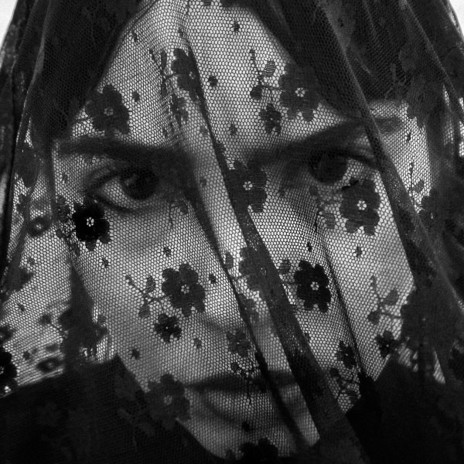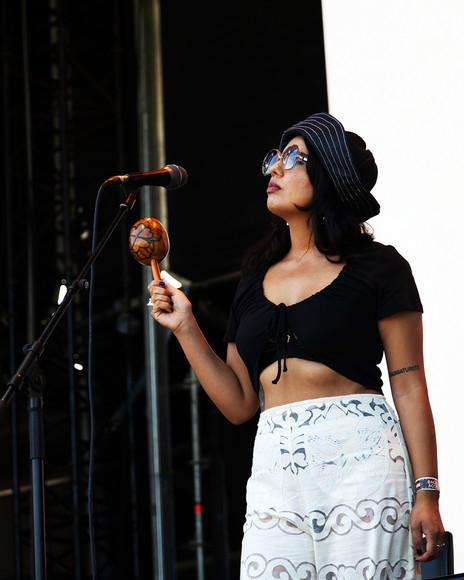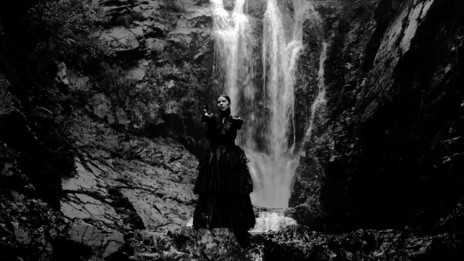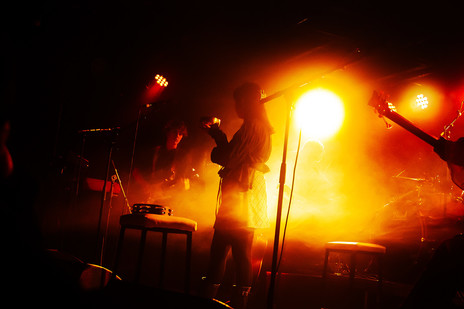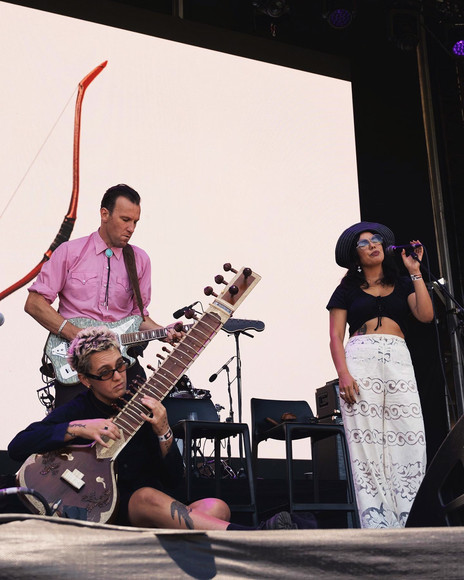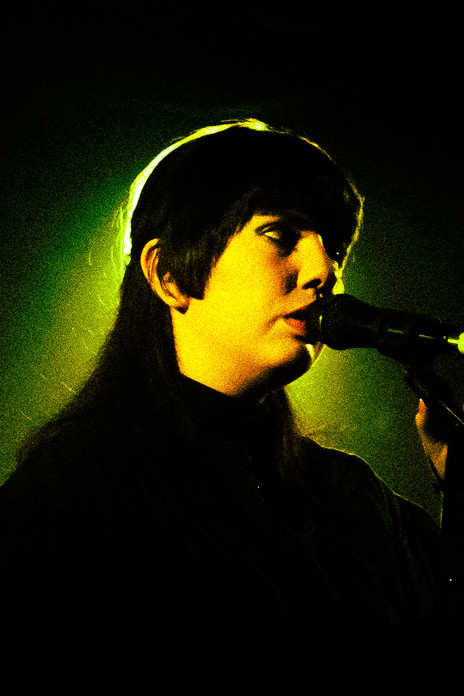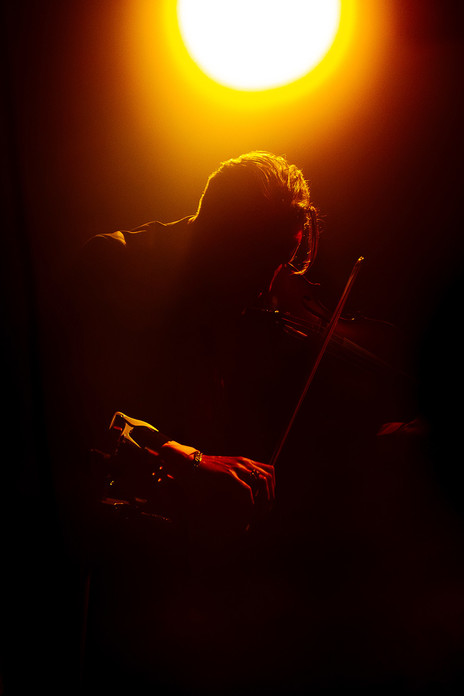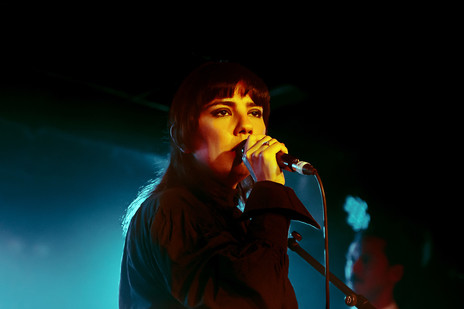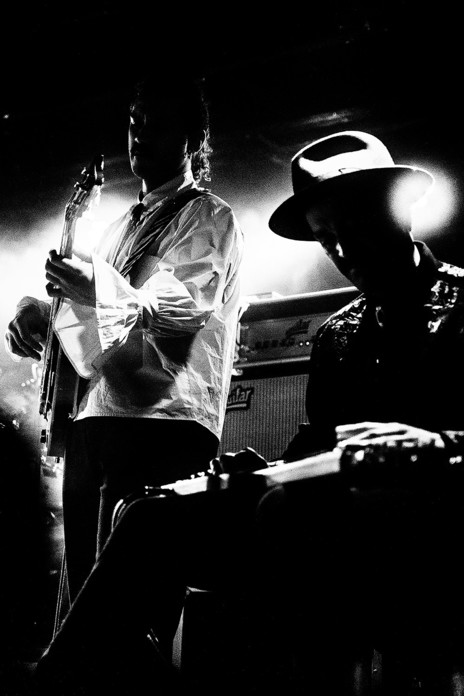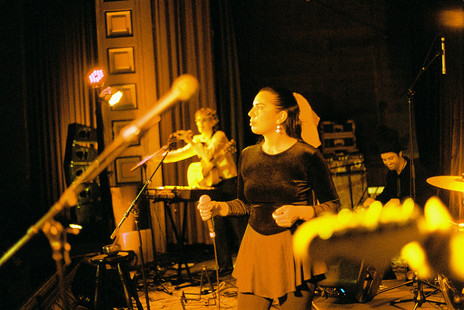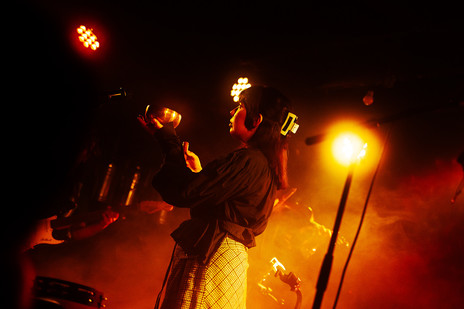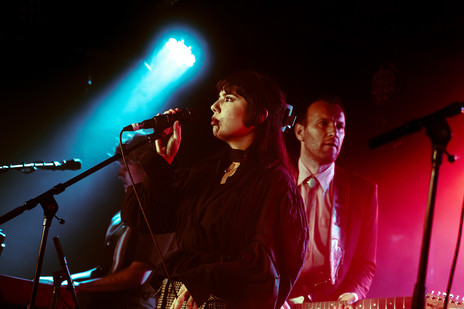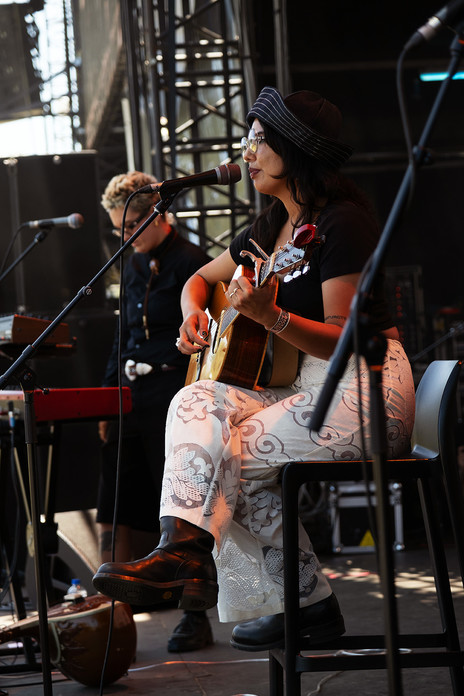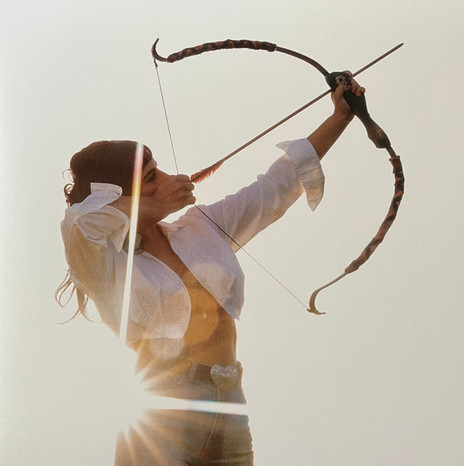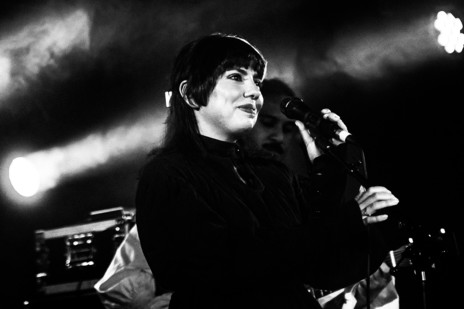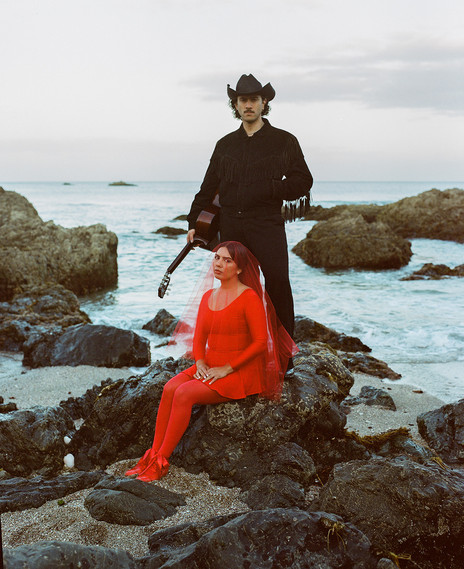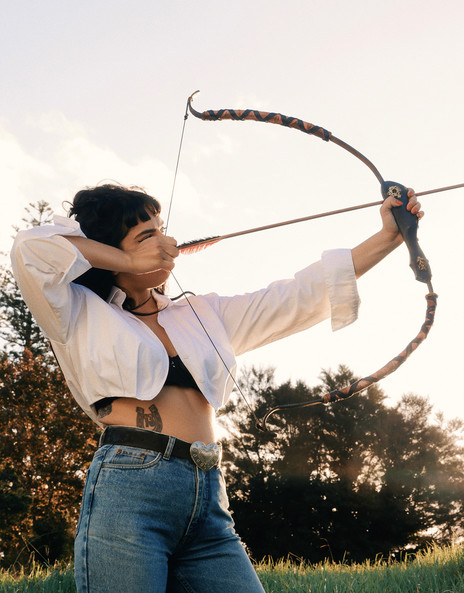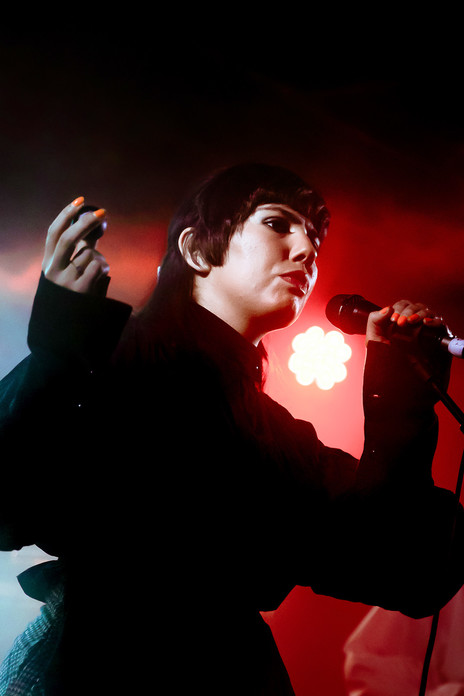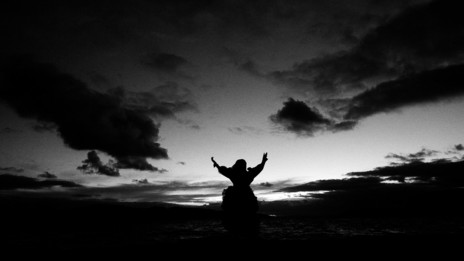The borders of the expansive Kaipara district encompass Dargaville in the northwest, down the Wairoa River to the eponymous harbour and across the Piroa/Brynderwyn ranges to Waipu and Mangawhai in the east. While the east’s rapid gentrification sees it resembling more the flasher parts of Auckland’s East Coast Bays with every passing day, the west retains its off-the-beaten-track vibe and is both the poorer and richer for it.
Nestled at the inland edge of the harbour, the rural town of Maungaturoto was once Aotearoa’s northernmost railhead. Newly enlisted soldiers in their hundreds boarded trains here during the First and Second World War, heading for Auckland and beyond, many never to return.
In those days there was a thriving community just along the road that even boasted a cinema, but – like other townships along the Kaipara – that heyday has passed.
Fred Renata grew up here. Well-known as a cinematographer (Muru, Mt. Zion, Poi E: The Story of Our Song), Fred is also a singer and musician who has written and performed songs all his life, mostly country and rock’n’roll tunes. A couple of them earned him best songwriter awards back in the late 80s, and even garnered some attention from The Man In Black himself, Johnny Cash.
Returning to Maungaturoto and his roots, the home and recording studio he made in the old bus shed became a creative haven away from the city for himself, his friends, and his tamariki.
Shakey Studio is in old railway bus shed in Northland, a cluttered yet expansive space
Shakey Studio is a large open space, cluttered yet expansive. The drum kit, pianos, organs, and various guitar amps share the room with racks of fishing rods, film projectors, surfboards, and a vintage American pick-up truck. The vocal and mixing booths, armed with up-to-date tech, are tucked away under the stairs. It’s a comfortable environment to write and record.
In 2018 Aimee, who had been living and writing songs in the flat upstairs between jobs in Auckland, hanging out with her grandmother and walking the dog, block-booked the place for a couple of weeks. She filled the big room with an eclectic group of musicians, including Tiare Kelly (guitar, keyboards), Rewi Mclay (lap steel) and Jackson W Hobbs (drums, percussion) who remain in her band today.
The songs were recorded by Colleen Brennan (Solid Gold Hell bassist) and Morgan Allen, the latter also taking on mixing duties; additional recording was done at Depot Sound in Auckland.
Aimee and Tiare’s friendly collaboration dates back to their first adventures in music. The pair got to know each other at Tiare’s folks’ place in Auckland when Aimee was 17 and Tia 13. Tia’s stepdad Chris Mauger is one of Fred’s frequent film industry collaborators, so while the dads talked shop the kids would pass the time bashing away in the music room.
“Dad would wander in and start playing bass,” says Aimee. “Tia was learning guitar at the time, but I didn’t know how to play any instruments, so I just got on the drums and smashed them about and kind of taught myself how to hold a beat for them to play to.”
Fred got right behind the family band idea, and next thing you know Daddy and The Dames were playing at gallery openings, small gigs and support slots around Auckland.
“We played about six shows.” says Aimee. “A gig at the Wine Cellar, one at the Kings Arms. We played at a couple of John Pule exhibitions, and we recorded a song called ‘Moshi-Moshi’, which was on the Y2K soundtrack” (a 2015 short film written and directed by Rina Patel and shot by Fred; the band is credited as Youth In Asia).
“It’s crazy that Tia was so young, somehow we found loopholes that made it okay for her to be at the gigs.”
Aimee was singing lead and drumming while Tia and Fred played guitar and bass and sang back-up. If you’ve caught Erny Belle and band live with Tiare in the line-up then you’ve heard their close harmonies, voices blending in that way that sisters can after singing together for years.
Aimee’s home life while growing up was busy with art and music and populated with interesting and inspiring characters. Her mum was a promising opera singer whose career was cut short by debilitating stage fright, and Fred was jamming – mates with Pauly Fuemana in the days after he returned from his ‘How Bizarre’ driven globetrotting.
Aimee’s childhood was busy with art, music, and interesting and inspiring characters
“I think Pauly had a massive influence on me, but I didn’t actually connect with his work until I was a little bit older, and I realised how amazing he was,” says Aimee. “Quite sad in a way to come to that realisation after he was gone and not had the chance to just talk to him about stuff or have conversations with him about music.”
Pauly was enthused about going on a European tour and was keen to involve Fred and Aimee, but before anything could come to fruition he had fallen ill and passed away. The vibe that Pauly found on the diverse explorations of his later solo demos utilise more subtle signifiers than his prior hits to capture a sense of Pacific place, and this knack for subtly evocative, painterly or photographic framing in his lyrics, arrangements and instrumentation is there throughout Erny Belle’s releases to date.
Through her 20s Aimee, who was living on K Road, started performing at inner city venues as a solo artist. One gig led to another and soon she was attracting positive attention.
“I didn’t think I was very good, and I wasn’t, but there was something about it that people liked. So, I decided to go away and come back ready rather than kind of rinsing myself on the scene for people to get sick of before I really had something to share. Auckland’s too small to grow up in public like that.”
The plan was to retreat to Maungaturoto and write an album’s worth of songs, record them and get it pressed. Sure enough, by 2019, following two-and-a-half years of willpower-driven creative effort, 300 copies of the self-produced and self-funded Venus Is Home had arrived from central Auckland’s Holiday Records pressing plant. Aimee began putting them in shops around the country, selling them on Bandcamp and at shows.
“My booking agent Julian Carswell had worked with Benee’s manager [Tiare Kelly has played with Benee for much of her career so far] and through friendly connections the LP was put in front of Flying Nun and made that whole process really easy. They re-pressed the album and promoted it, and the follow on is that I got NZ On Air funding for the next one.”
Through her sister Phillipa, Aimee had got her first on-set job in a costume department when she was 18, a line of work she pursued until recently when she got too busy with Erny Belle (all her siblings have worked in various film crew roles). It’s easy to see this background informing the high volume and variety of her music videos, many of which have been collaborations with cinematographer and musician/producer Matt Hunter. She uses the movie toolbox with the familiarity of someone who has paid her dues with long hours on set; the videos for ‘Unchained’ and ‘Pitt Stop’ from her second album were edited by her and completed the day after they were shot.
Each clip sees Aimee adopt a persona that fits, then discard that costume for something entirely different in the next. “You look at some artists and they have everything so together in terms of their aesthetic and all of their visuals, a theme that’s really strong and just very niche to them as an individual. I feel like I don’t have that, I just have way too many characters inside of me.”
the characters On the ‘Venus Is Home’ album inhabit a languid country-tinged world
On the Venus Is Home album these characters inhabit a languid country-tinged world, a Pacific-pop concoction featuring arrangements that have been stripped back to sparsely frame the intimate vocals, interspersed with splashes of lush double-tracking and close harmonies, mostly all Aimee’s multi-tracked voice. The songs explore territory loosely defined by pop music’s lyrical economy and abstraction on the one hand and a wry, observational dark humour anchored in country music on the other.
Translated into moving image, ‘Island Time’ sees Northland locations become the backdrop for a stylised dream of Pacifica romance (featuring a smouldering leading-man turn from Belle’s bassist, Navakatoa Tekela-Pule); ‘Baby Blue’ a handheld home movie of fam-and-friends Kaipara summertime; and ‘Hell Hole’ a dark and sexy whip-cracking country-and-western movie.
But it’s the video for the title track that feels like the noir heart at the centre of it all. The song is an ode to her grandmother, Fred’s mum Venus, who passed away during the album’s production. The verses describe intimate conversational vignettes of small-town life, building to the layered vocal refrain “Venus is home” in the song’s coda, a transcendent passage vibrant with the sound of genuine loss. For me it’s up there with another great Aotearoa song of mournful farewell, ‘Randolph’s Going Home’ by Shayne Carter and Peter Jefferies.
The video was shot by Fred at locations on the Kaipara coast. “It was just amazing to have that song being shot by Dad. It was special. But it was a difficult shoot, it was just a weird energy. I don’t know how to explain it.”
A tricky premise, two family members making a piece of art about a lost third, and I note that if the process wasn’t difficult, you might not have been doing it right.
The result is striking. Stark monochrome frames of masterfully captured days’ last light feature Aimee in the forest and on the shore at Batley where Venus would gather oysters and go fishing. The long edits give space to the unspoken grief within the lyrics – but it’s maybe no great surprise that it has the least views of all her clips, translating better to the immersion of a bigger screen than the ubiquitous handheld device. A portrait taken by Fred during the shoot serves as the LP cover.
Aspects of Māoritanga are woven into Erny Belle clips and live performances, often in movements and occasionally songs. Aimee’s first couple of years of schooling were in kohanga reo, but a move into the English-speaking education system saw her lose her fluency. Her reconnection to Maungaturoto and her family’s roots plays a major part in her creative process, and the sense of place that permeates the Taite Music Prize/Best Independent Debut-nominated Venus Is Home LP seems intrinsic to its success as a piece of art.
But things could have panned out differently. Aimee had investigated working with producer Ben Edwards (noted for his work with Marlon Williams, Delaney Davidson and Aldous Harding among others) at the Sitting Room studio in Lyttelton.
“I wanted to work with Ben Edwards because obviously I liked all of the work that he had done,” says Aimee. “I thought that my songs would be in a similar realm. It was pretty much on for a minute there, like he was super keen, but then it just became financially impossible. Perhaps if I had done it in Lyttelton it just wouldn’t have made sense.”
The songs on ‘Not Your Cupid’ evoke the cinematic aspect of David Lynch’s ‘Twin Peaks’
The second album Not Your Cupid carves out territory in a realm adjacent to Venus Is Home though somehow slightly elevated. Most of the songs work with similar folk-pop arrangements and employ the same deceptively minimal lyrical play, but this time the production is airier, the songs and arrangements evoking a cinematic aspect reminiscent of David Lynch’s Twin Peaks. Aimee has mentioned in press releases that this album sees her entering a Te Ao Mārama era, a world of light that contrasts the moodier tones of the Kaipara that permeate the Venus Is Home landscape.
The album was recorded and co-produced by De Stevens at Auckland’s Roundhead Studios. “De had mixed my ‘Meri Kirihimete’ single [Erny Belle’s 2022 Māori-ana Christmas song], which was a very quick turnaround and I just really enjoyed working with him. And on the album, he was so hardworking and super-lovely.”
Also helping at the sessions and credited with vocal production was Semisi Ma’ai’i, a musician who plays in Dunedin band Marlin’s Dreaming, with De Stevens. “I had a week in the studio with the band,” says Aimee, “then a week doing vocals and having Semisi there meant I could concentrate on singing without having to jump out of the zone to be hypercritical of the take, and De could focus on engineering.”
The album opens with the bold double-whammy of ‘Bowman’ and ‘Unchained’, the first an expansive album-track type of song that might usually sit somewhere in the “deep” territory of side two, the second a quiet manifesto for freedom and love that ambles along thoughtfully before shifting gear into an uplifting coda with its wonderful refrain of “You’ll know, someday”. As with Venus is Home, side two closes with the title track, answering the album’s opener with another example of Sagittarian symbolism.
Aimee says that ‘Bowman’ is “about the determination of going somewhere in the future, ‘Inertia’ is about stagnation, not being able to move forward, and ‘Unchained’ is about being released from the past. In a way it’s past, present, and future, though all a bit more abstract than that. Nothing that I make is ever very intentional, but it all makes sense eventually.”
The album release was celebrated with a tour featuring the full line-up from the recordings, the debut show at Tāmaki Makaurau’s Wintergarden (in the Civic Theatre) showcasing songs and musicians fully at ease with each other. “The Wintergarden show was one of my favourites to date, and there was a gig at the San Fran [in Whanganui-a-Tara Wellington on the mid-2023 Hōtoke tour] that was just a really good crowd, a party vibe. It’s such a great venue with the stage at a perfect height so you connect with the audience but elevated enough to be theatrical.”
There have been some notable support slots too, including Orville Peck and Billy Bragg, both at The Powerstation in Auckland, the latter seeing the arrangements pared down and presented as a twin-guitar duet with Tiare.
Aimee’s star sign Sagittarius is often interpreted as representing a symbolic bridge between earthly and heavenly things, and together the albums Venus Is Home and Not Your Cupid might chart an arrow’s trajectory out to somewhere both musically and geographically. Hoping to find international representation to facilitate this, Aimee has entertained thoughts as to what an international Erny Belle might look like.
“I have made a few contacts, but I can’t do it myself. I need to find an international manager. There doesn’t seem to be anyone in New Zealand that would be suitable.”
There’s an excellent instalment of the Re: News Undercover series on YouTube where Erny Belle and Delaney Davidson discuss their craft, and at one point Delaney asks Aimee what elements she might be thinking about in relation to her next album. She replies, “I wanna experiment with some synth, Bowie vibes.”
While synth sounds are a component of some arrangements on Not Your Cupid, they are far from being key to the album’s palette, but the urge to travel in both a physical and aural sense might yet bring these sounds to the fore.
“That was me thinking out loud,” says Aimee, “about wanting to experiment with ethereal music as a writing process or even as a whole different project, maybe a duo with Tia but not two guitars, maybe electronics and synths, some sitar. And it would be easier to tour overseas.”
